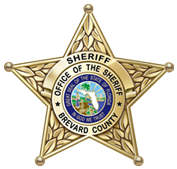- Don’t believe promises of easy money …if it sounds to good to be true…then it usually is. Many “get rich quick scams” are not reported because the victim is embarrassed. Embarrassment is a scammer’s tool. It is not uncommon for a scammer to hit many people in a single community before it is reported.
- Think twice before entering contests operated by unfamiliar companies.
- Check the ID of any service or repair person or contractor.
- Never pay a fee in order to win or claim a prize.
- Resist pressure or aggressive sales practices.
- Guard your personal information…do not release personal bank numbers, credit card numbers or social security numbers.
- Invest in a shredder and shred all documents that contain personal information before discarding.
- Try not to make a decision the same day a proposal is made. Consider getting other quotes for comparison. Consider discussing the quote with a trusted friend or family member to ensure it “sounds right”.
- Always get a written and signed contract for home improvements and repairs before the work starts.
- It’s illegal for telemarketers to ask for credit card, phone card, social security, or bank account numbers to verify a prize or gift.
- Beware of 900 numbers. You pay for 900 area code calls, which can be as high as $10 or more per minute. The scammers do their best to keep you waiting or talking as long as possible before you figure it out.
- Investigate before you invest. Never make an investment with a stranger over the phone.
- Beware of cheap home repair services, especially when these people show up at your doorstep with great offers. It is not unusual for them to do part of the work, use shoddy materials and untrained workers, or simply take your deposit and never return.
- Use common sense in dealing with auto repairs. Get a written estimate, read it carefully, and never give the repair shop a blank check to “fix everything.”
- Look closely at offers that come in the mail. Con artists often use official-looking forms and bold graphics to lure victims. If you receive items in the mail that you didn’t order, you are under no obligation to pay for them.
The following are “Red Flags” to Frauds & Scams:
- A promise that you can win money, make money, or borrow money easily
- A demand that you act immediately or else miss out on this great opportunity
- A refusal to send you written information before you agree to buy or donate
- An attempt to scare you into buying something or providing personal information
- Insistence that you wire money or have a courier pick up your payment
- A refusal to stop calling after you’ve asked not to be called again
If you become a victim…REPORT IT to Law Enforcement
- Report suspected fraud activity to the Brevard County Sheriff’s Office or your local law enforcement agency if you live within a municipality.
- You can also obtain information by calling the National Fraud Information Center at 800-876-7060, 9:00 a.m. to 5:30 p.m. EST.
- Reporting is vital. Only one-third of people who are victims report them. Reporting fraud keeps con artists from making someone else a victim.
Additional Resources
- Fakechecks.org – this website was created by the National Consumers League (NCL), as a central source of information and advice about fake check scams. It was created in collaboration with the Alliance for Consumer Fraud Awareness, a coalition of consumer and business organizations, government agencies, and companies that are committed to fighting fake check scams.
- FBI.gov – Common Fraud Schemes & Targeting Senior Citizens.


